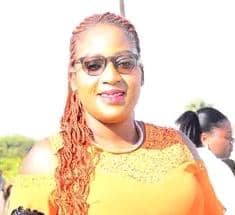
The Co-operative Development Foundation of Canada (CDF) will implement a 5-year (2024-2028) Integrated Aquaculture-Agriculture to combat food insecurity in Malawi (IAAM) project in eight districts of the country including Dowa.
The project is a strategic response to other solutions for economic recovery to bethe sustainable, resilient, and inclusive strategy of “combating forces against hunger,” a policy to improve food sufficiency in Malawi with a primary goal of accessing markets for small-scale food producers as a means of combating food insecurity in Sub-Saharan Africa.
Introducing the project to the District executive committee in Dowa, IAAS Specialist Tionge Soko, said in Malawi, farming families are disproportionately poor and vulnerable and bear the brunt of climate change impact; they often live at the edge of poverty.
Soko said Malawi has become a climate hotspot due to extreme weather events such as floods, cyclones, droughts, unpredictable rainfall patterns, deforestation and forest degradation saying the IAAS will increase the productivity and income of food producers.
She said the project is aimed to increase the productivity, income of, and access to markets by small-scale food producers, especially women, engaged in integratedaquaculture-agricultureesystemsm comprising fish, crops, livestock, and agroforestry sub-systems to combat food insecurity.
The Specialist said the key action areas of the project arecooperativee and value chain development, climate resilient aquaculture and agriculture production, agriculture market diversity, women’s rights and gender equality, Sexual and Reproductive Health and Rights, forestry and biodiversity restoration.
She said the project will increase knowledge among farmers on managing climate risks to support resilient aquaculture production andstrengtheng the organization of smallholder farmers through market linkages between farmers and private sector actors.
“The project will improve SRHR for women, men, boys and girls through Social Behavior Change Communication (SBCC) and forest cover,” said Soko
She said the long-term impact of the project is increased adoption of diversifiedclimate-resilientt technologies such as IAAS and other climate-smart agricultural technologies that limit emissions ofgreenhousee gases from food production.
In his remarks, Dowa District Council’s Acting Chief Planning Officer Yusuf Laki, called on partners to sharethe progress of the projects being implemented in the district andsigng Memorandum of Understanding (MoUs) with the council and the CSO Network for the distric,t saying this enhances cooperation, transparency and accountability.














